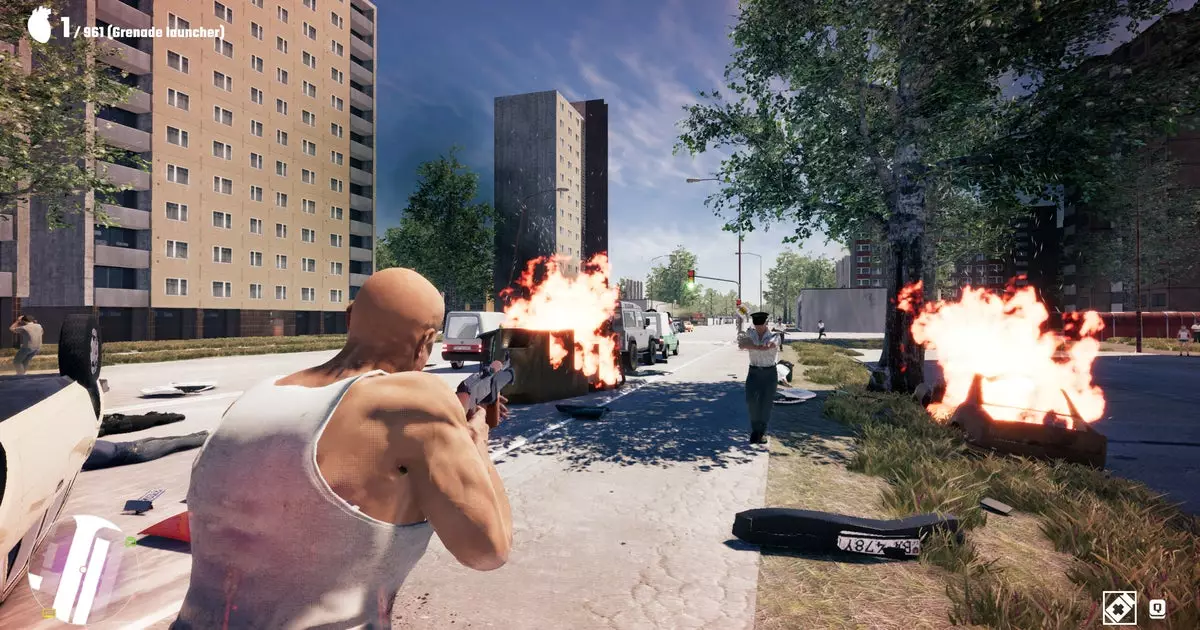After spending time with the early access version of the open-world game Vivat Slovakia, I find myself grappling with the realization that it may not become the next great contender against the elder statesman of the genre, Grand Theft Auto 6. The disappointment stings a little, especially when considering that Rockstar’s inflated self-promotion tends to rub me the wrong way, yet I’ll undoubtedly sink countless hours into their latest release. Vivat Slovakia is rather an audacious tribute to the Grand Theft Auto series, steeped in nostalgia and homage, right down to how the title’s typography echoes Rockstar’s style. Though it’s unclear whether the game deserves your time, I feel enlightened by its mere existence, spurring me to unearth the layers of this intriguing title.
The game introduces itself with a tantalizing premise: an open-world experience set against the backdrop of 1990s Slovakia, a time when corruption permeated societal structures and the law was more suggestive than definitive. You step into the worn-out shoes of Trotter, a somewhat detestable taxi driver who also moonlights as an undercover cop. The game has recently integrated English voice acting, which, while not strictly necessary, demonstrates a brave commitment to enhancing player immersion. The initial gameplay, titled ‘Side A,’ invites players to engage with the world through taxi driving, allowing for early interactions that set the tone for the seedy underbelly of Slovak life.
What stands out in Vivat Slovakia is not just its mechanics, but the characters and conversations that embody the game. Within moments of beginning, players are thrust into dialogues that cite corruption, with Trotter lazily suggesting a journalist’s profession can be dismissed as unseemly simply because she will be working in a hotel. This undercurrent of moral ambiguity paints the game’s narrative in shades of gray—a combination that manages to be both off-putting and fascinating. It creates a world that feels authentic in its complexity, reflecting the societal struggles and moral dilemmas characteristic of that tumultuous decade.
Vivat Slovakia impresses with small yet impactful details that enrich the gameplay experience. The inclusion of multiple radio stations provides a musical backdrop, enhancing immersion as players navigate chaotic streets. The vehicle’s design and mechanics show responsiveness, as evidenced by the headlights naturally dysfunctioning after a collision, simulating a more realistic driving experience. Additionally, the variety among the passengers during taxi missions emphasizes the dynamic interaction players will encounter, as each group expresses their displeasure in their own unique ways.
However, it is the tutorial elements that elevate the game into controversial territory. Players are invited to wield a sniper rifle to intercept someone attempting to escape to another country—a choice that dramatically raises eyebrows and might provoke discontent. Yet, this daring portrayal could also be perceived as an audacious commentary on historical strife.
Vivat Slovakia aspires to tell a story steeped in loyalty, corruption, and the intricate dance of power dynamics. Players are set to navigate a web of complex relationships and shifting alliances, within a framework that hints at historical realities faced by many during the 1990s. Each mission reflects a careful consideration of the political climates and underground dealings that shaped Slovakia’s evolution, creating an experience that transcends traditional narrative structures in video games.
The voluntary engagement of professional voice actors significantly enhances the storytelling, allowing players to connect with the struggle for survival and integrity within this ethically challenging environment. These narrative ambitions showcase a bold attempt to enrich the relationship between player and story, even if the execution occasionally falters.
While Vivat Slovakia may not dethrone titans like GTA 6, its ambition and individuality merit attention. It represents a courageous foray into the realm dominated by big-budget developers and offers a unique interpretation of an open-world game steeped in historical context. Although I can’t unequivocally recommend the game, it certainly deserves recognition for venturing beyond rote imitation and striving to carve out its niche. In a world where creativity often succumbs to commercial pressures, Vivat Slovakia’s existence is a refreshing aspiration—flawed yet compelling, much like the very world it attempts to portray.


Leave a Reply